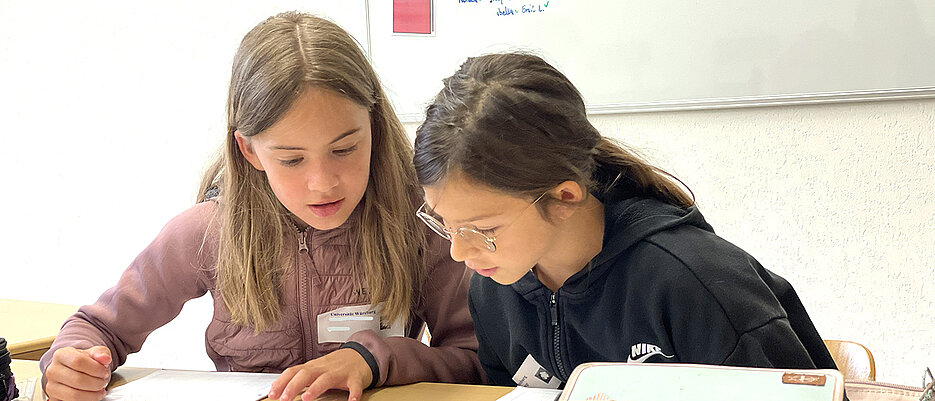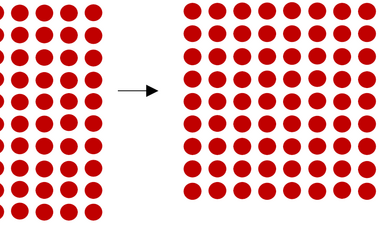The Co-Sinus Project at the Chair of Mathematics Education
11/11/2025Under the direction of Professor Hans-Stefan Siller, Co-Sinus publishes the new task "Quadratzahlen" (square numbers), which gets primary school children excited about maths.

The Co-Sinus project is aimed at students and teachers who want to organise maths lessons in primary schools in an innovative and exploratory way. The team publishes new research tasks online at regular intervals, which not only promote mathematical skills, but above all awaken curiosity and a spirit of discovery.
"Our research tasks are challenging tasks that offer a variety of opportunities for mathematical exploration and are self-differentiating in order to encourage children of different ability levels to discover and explain mathematical phenomena," explains Dr Angela Bezold, who is developing the project together with changing teams of students at the University of Würzburg.
At the centre of the project is the idea that independent exploration and reflection trigger the best learning processes. The Co-Sinus project guides teachers and students to engage intensively with the research tasks and, in addition to concrete lesson plans, offers insights into the didactic and mathematical background of the subject. This contributes to the further development of maths teaching in schools and at the same time supports student teachers in combining research and practice.
The research tasks are tested in courses and projects such as Emil's research camp, on the WDR action day "Here comes the mouse" or on Pi Day at the Kulturspeicher Würzburg. In this way, practical experience is channelled directly into the further development of the tasks.
The New Task "Square numbers"
"399 ⸱ 401? That's easy, I can do it quickly in my head!" - This is how confidently children solve this supposedly tricky task if they have previously worked on the new research task "Square numbers" in the Co-Sinus project. Instead of reaching for a calculator, they playfully discover mathematical relationships and experience how exciting arithmetic can be.
In the current research task "Square numbers", children discover that tasks such as 399 ⸱ 401 can also be solved elegantly without a calculator. In class, children use dot boxes and tiles to compare pairs of problems such as 10 ⸱ 10 and 9 ⸱ 11. By moving the bottom row of tiles in the 10x10 rectangle to the right, i.e. changing the factors by ± 1, the rectangle of the multiplication task 9 ⸱ 11 is created. It is noticeable that one tile remains:
The field of dots can now be used as an example to explain the relationship between the task and the partner task (square task): 11⸱ 9 = 10 ⸱ 10 - 1. The children now transfer these discoveries to 399 ⸱ 401.
From University to School
A special feature of Co-Sinus is the linking of the first, second and third phases of training to become a primary school teacher. Students develop and try out research tasks in seminars, prospective teachers reflect on their use in lessons and maths teachers receive a collection of tasks online with practical ideas and theoretical background information for direct use. Positive feedback from schools shows that the concept works - as one primary school teacher reports: "We are already eagerly awaiting the next research task."
All current research tasks - including the new "Square numbers" task with animation and teaching material - can be found online.
Anyone who wants to discover more about maths can get started right away: After all, mathematical thinking begins with a simple question and the joy of exploring it.
Contact
Prof Dr Hans-Stefan Siller, e-mail: hans-stefan.siller@uni-wuerzburg.de, Tel:+49 931 31-89867








